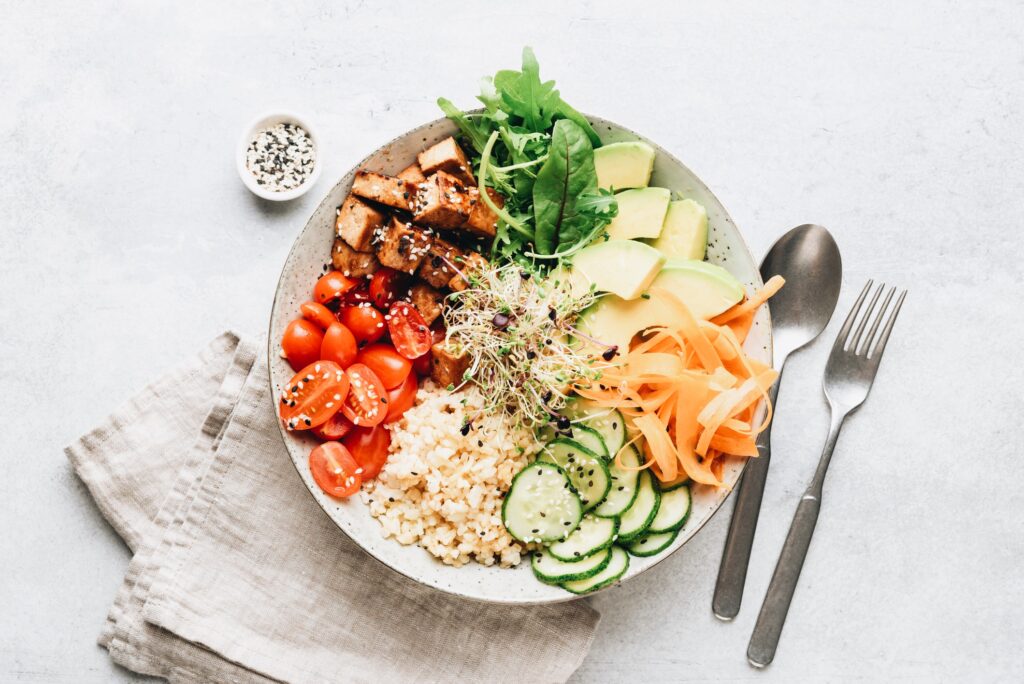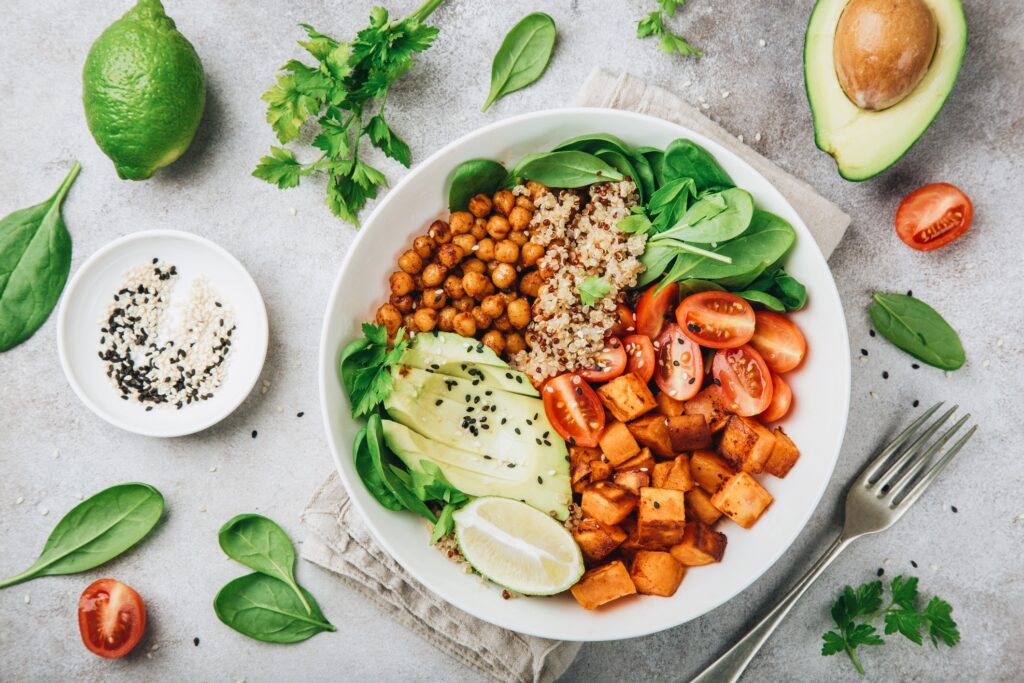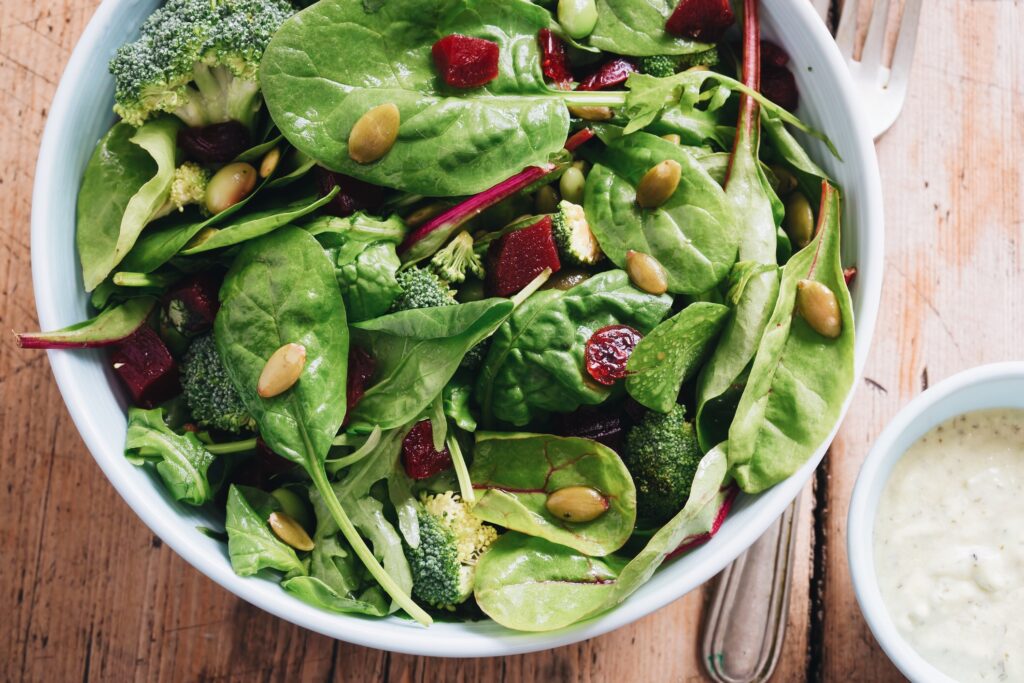Wondering how to eat healthy on a plant-based diet?
In this episode of LIVEINDLY With Me, Delilah Bisase—a Los Angeles-based registered dietitian and energy healer—talks about getting the proper nutrients on a vegan diet.
“As a mind, body, and spirit dietitian, my focus just isn’t on the physical,” Bisase explains. “I really want my clients to have a healthy relationship with food and, in turn, a healthy relationship with themselves.”

How to Eat Healthy on a Plant-Based Diet
Bisase explains that one of the questions she’s most commonly asked is whether or not a vegan diet can provide all the proper nutrients.
“Now, before I get into it, keep in mind that this video is for educational purposes only,” she adds. “I highly encourage you to work one-on-one with a healthcare practitioner.”
Where to find iron?
The mineral iron is responsible for allowing the body’s red blood cells to transfer oxygen throughout the body. “It also plays a key role in cognitive development,” she adds. “That’s why it’s really important in pregnancy and early childhood development.”
The two types of iron found in foods are heme and non-heme. Heme is commonly found in animal-based foods, while non-heme is found in plant-based foods. In order to help the body absorb more non-heme, Bisase has a few recommendations.
Soaking, sprouting or fermenting beans and lentils reduces the phytate content, which makes iron easier to absorb. Vitamin C increases the absorption of iron, so when consuming a plant-based source of iron, it’s good to pair it with a food rich in vitamin C.
Calcium without dairy?
There are plant-based sources of calcium, which helps support bones and teeth. “When a person follows a whole food, well-balanced vegan diet, they’re more likely to consume larger amounts of foods that contain antioxidants and other phytonutrients that are very protective to bone health,” Bisase explains.
Examples of plant-based sources of calcium include dark leafy greens, tofu, and fortified foods like orange juice and certain breakfast cereals.
Omega-3 through plants?
“Omega-3 fats play a big role in cell structure and function, most notably in the brain,” Bisase says. Omega-3 fats are called essential fats because the body is unable to make them, so they must be obtained through diet.
The three main types of omega-3s are ALA, EPA, and DHA. Plant-based sources of omega-3s include chia seeds, flaxseeds, and walnuts.

What is B-12?
B-12 is a vitamin that’s really important for red blood cell formation, nervous system function, and DNA synthesis. “Traditionally, eating meat has been a source of B-12,” Bisase explains. “However, the environment and the animals’ diet has changed. There’s less of the B-12 forming bacteria in the soil.”
Instead, animals are supplemented with the vitamin. “If the animals are being supplemented, we might as well supplement, too, and just spare their livelihoods,” she adds.
Vitamin D through supplements?
Vitamin D supports bone health, immune system function, and helps the gut absorb calcium. It’s known as the sunshine vitamin because it’s synthesized in the body’s skin after exposure to sunlight.
Although there aren’t many natural food sources of vitamin C, it can be found in fortified plant-based foods and through vitamin supplementation.

Iodine from table salt?
Iodine is a key component in thyroid hormones. Thyroid hormones play a major role in processes like metabolism, the creation of different kinds of proteins, and the function of various enzymes. Iodine deficiency leads to hypothyroidism, an underactive thyroid.
“As far as food sources of iodine, seaweeds are the most dense sources,” Bisase says. Iodized salt is also a source of iodine. A quarter teaspoon of iodized salt contains 75 times more iodine than a quarter teaspoon of sea salt.
Plant-based protein?
Protein helps promote muscle growth and maintenance. It’s also important for the structure, growth, and repair of various tissues and organs.
“When you’re following a vegan diet, best practice is to consume a wide variety of plant-based proteins each day in order to ensure that you’re getting all the essential amino acids that you need,” Bisase says.
Plant-based sources of protein include beans, lentils, legumes, nuts, seeds, and whole grains.


